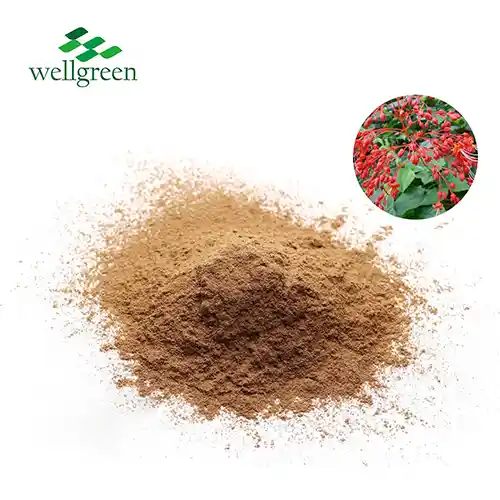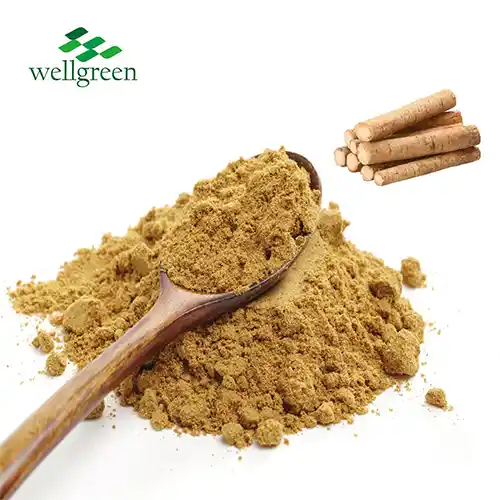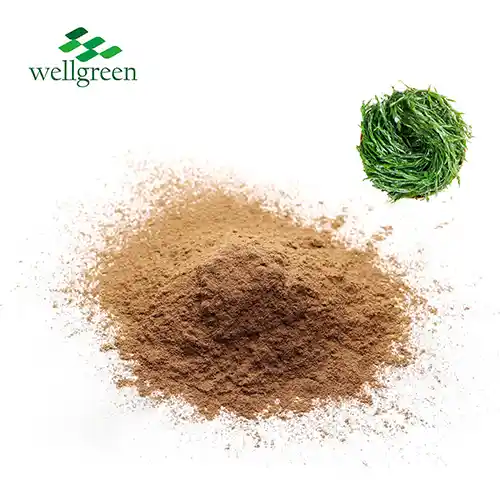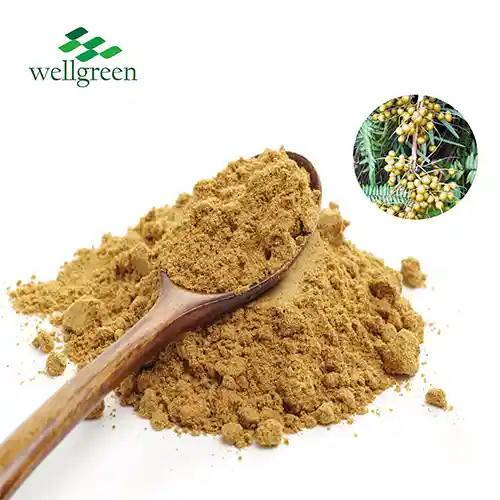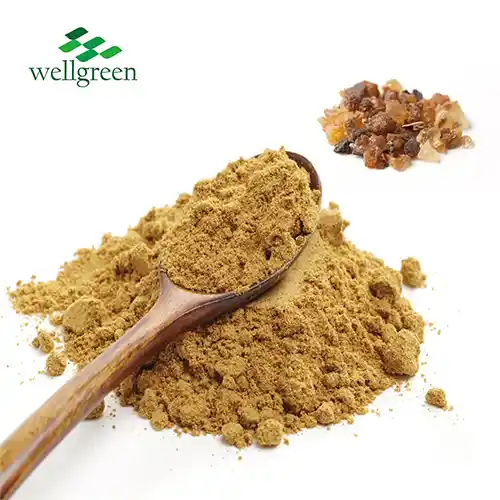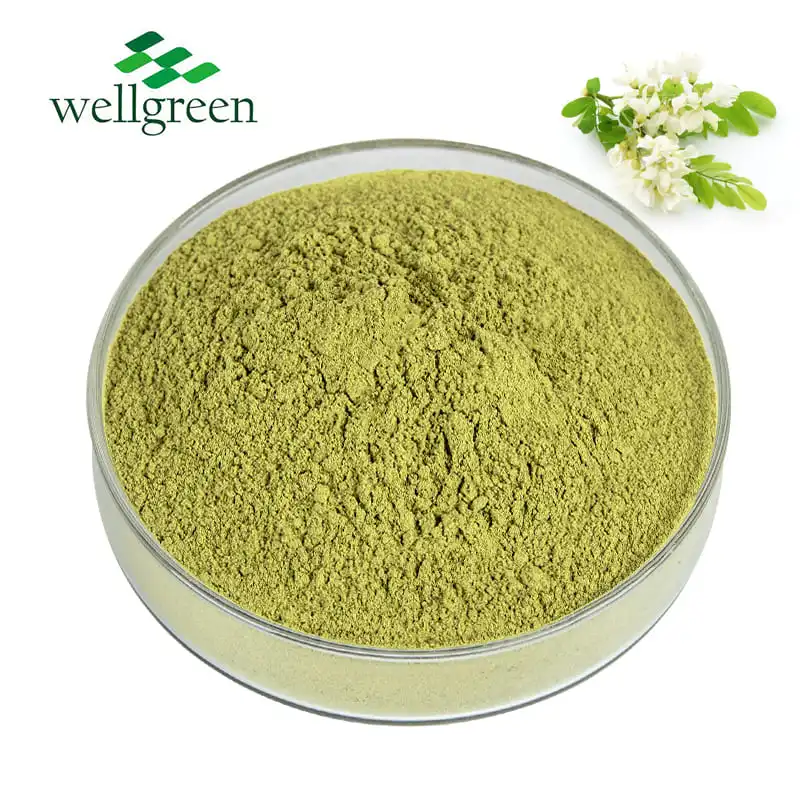Kava Extract Powder vs Valerian Root: Which Works Better for Anxiety?
2025-09-25 15:21:36
When it comes to natural remedies for anxiety, kava extract powder and valerian root are two popular contenders. Both have been used traditionally for their calming effects, but their mechanisms and effectiveness differ. Kava extract powder, derived from the roots of the Piper methysticum plant, contains kavalactones that interact with the brain's GABA receptors, promoting relaxation and reducing anxiety. Valerian root, on the other hand, works through a combination of compounds that may influence GABA levels and serotonin receptors. While both have shown promise in alleviating anxiety symptoms, research suggests that kava extract powder may have a more potent and immediate effect, particularly for generalized anxiety disorder. However, individual responses can vary, and factors such as dosage, quality of the extract, and personal physiology play crucial roles in determining effectiveness.
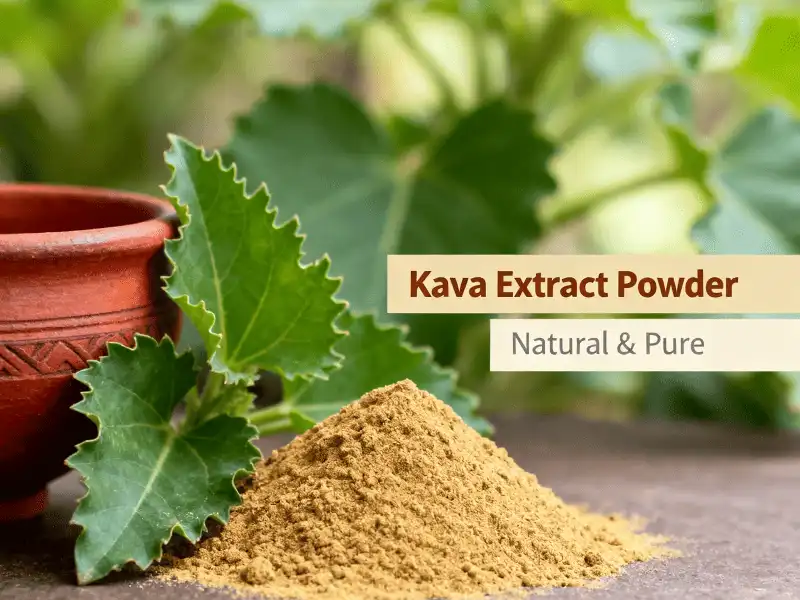
What Are the Key Differences Between Kava and Valerian Root?
Origin and Botanical Characteristics
Kava extract powder comes from the Piper methysticum plant, native to the South Pacific islands. This shrub belongs to the pepper family and has been cultivated for centuries for its psychoactive root. The active compounds, kavalactones, are concentrated in the root system, which is harvested, dried, and processed into a fine powder.
Valerian root, derived from the Valeriana officinalis plant, has a long history of use in Europe and Asia. This perennial flowering plant grows in temperate regions worldwide. The root and rhizome are used medicinally, containing a complex mixture of compounds including valerenic acid and valepotriates.
Chemical Composition and Active Ingredients
The primary active ingredients in kava extract powder are kavalactones. These compounds include kavain, dihydrokavain, methysticin, and yangonin. Each kavalactone contributes to the overall effects of kava, with some promoting relaxation and others enhancing mood.
Valerian root contains a variety of compounds, including valerenic acid, isovaleric acid, and valepotriates. It also contains GABA in small amounts, which may contribute to its calming effects. The synergistic action of these compounds is believed to be responsible for valerian's therapeutic properties.
Traditional Uses and Cultural Significance
Kava has deep cultural roots in Pacific Island societies, where it has been used in traditional ceremonies and social gatherings for centuries. The preparation and consumption of kava are often accompanied by rituals that emphasize community bonding and spiritual significance.
Valerian root has been used in traditional European and Asian medicine for over 2,000 years. It was prescribed for various ailments, including insomnia, anxiety, and digestive issues. Unlike kava, valerian's use was primarily medicinal rather than ceremonial.
Mechanisms of Action in Reducing Anxiety
Kava's Interaction with GABA Receptors
Kavalactones, the active compounds in kava extract powder, primarily exert their anxiolytic effects through interaction with GABA receptors in the brain. GABA (gamma-aminobutyric acid) is the main inhibitory neurotransmitter in the central nervous system, responsible for reducing neuronal excitability. Kavalactones enhance the binding of GABA to its receptors, leading to increased inhibitory signaling and a calming effect on the nervous system.
Research has shown that kavalactones also modulate other neurotransmitter systems, including serotonin and dopamine. This multi-target action may explain kava's ability to address various aspects of anxiety, including cognitive and somatic symptoms.
Valerian Root's Complex Neurochemical Effects
The mechanism of action for valerian root is less clearly defined than that of kava. Valerian contains multiple compounds that may contribute to its anxiolytic effects. Valerenic acid, one of the key components, has been shown to inhibit the breakdown of GABA in the brain, potentially leading to increased GABA levels and enhanced inhibitory signaling.
Additionally, valerian root extracts have demonstrated affinity for adenosine receptors, which may contribute to their sedative and anxiolytic properties. Some studies suggest that valerian may also influence serotonin receptors, though this mechanism requires further investigation.
Comparative Neurobiological Impact
While both kava extract powder and valerian root influence GABA signaling, their modes of action differ. Kava's kavalactones directly enhance GABA receptor function, leading to a more immediate and pronounced anxiolytic effect. Valerian's action is more indirect, potentially increasing GABA levels over time through inhibition of its breakdown.
The multi-compound nature of valerian root extracts may lead to a broader but less potent anxiolytic effect compared to the more targeted action of kava's kavalactones. This difference in mechanism may explain why kava is often reported to have a more noticeable immediate impact on anxiety symptoms.
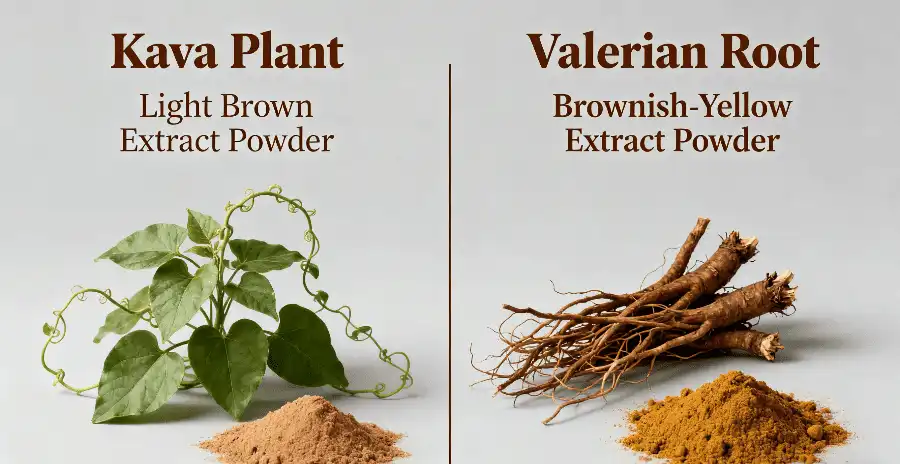
Comparative Research on Anxiety Relief Effectiveness
Clinical Studies on Kava Extract Powder
Numerous clinical trials have investigated the efficacy of kava extract powder in treating anxiety disorders. A meta-analysis of 11 randomized controlled trials found that kava extract was significantly more effective than placebo in reducing anxiety symptoms. The standardized mean difference in anxiety scores was -0.82 in favor of kava, indicating a moderate to large effect size.
One notable study published in the Journal of Clinical Psychopharmacology examined the effects of kava extract on 75 patients with generalized anxiety disorder. Participants receiving 120 mg of kavalactones daily for 6 weeks showed significant reductions in anxiety scores compared to the placebo group. Importantly, the kava group reported minimal side effects, suggesting a favorable safety profile.
Research Findings on Valerian Root
The research on valerian root for anxiety is more mixed compared to bulk kava extract powder. A systematic review of 21 studies found that while some trials reported positive effects, others showed no significant benefit over placebo. The variability in results may be due to differences in valerian preparations, dosages, and study designs.
A double-blind, placebo-controlled study published in Phytotherapy Research investigated the effects of valerian root extract on 36 patients with generalized anxiety disorder. Participants received 600 mg of valerian extract daily for 4 weeks. While the valerian group showed improvements in anxiety scores, the difference from the placebo group was not statistically significant.
Head-to-Head Comparisons and Efficacy Analysis
Direct comparisons between kava extract powder and valerian root for anxiety relief are limited. However, a comparative analysis of existing studies suggests that kava may have a more robust anxiolytic effect. The standardized effect sizes reported in kava studies tend to be larger and more consistent than those observed in valerian trials.
A review published in the Journal of Alternative and Complementary Medicine compared the efficacy of various herbal remedies for anxiety. The authors concluded that kava demonstrated stronger evidence for effectiveness in treating anxiety symptoms compared to valerian root. They noted that kava's effects were more consistently replicated across studies and showed a clearer dose-response relationship.
Conclusion
While both kava extract powder and valerian root have shown potential in alleviating anxiety symptoms, the evidence leans towards kava as the more effective option. Kava's direct interaction with GABA receptors and consistent performance in clinical trials make it a promising natural remedy for anxiety. However, individual responses may vary, and factors such as dosage, extract quality, and personal physiology play crucial roles. It's essential to consult with a healthcare professional before starting any new supplement regimen, especially when addressing anxiety disorders.
Contact Us
If you're a manufacturer or supplier looking for high-quality bulk kava extract powder or kavalactone powder, Xi'an Wellgreen is your trusted partner. Our GMP-certified factory ensures top-notch quality and consistency. Contact us at wgt@allwellcn.com to learn more about our products, OEM support, and fast delivery options. Choose Xi'an Wellgreen for your kava extract powder needs and elevate your product line with nature's powerful anxiolytic.
References
1. Sarris, J., et al. (2013). Kava in the treatment of generalized anxiety disorder: A double-blind, randomized, placebo-controlled study. Journal of Clinical Psychopharmacology, 33(5), 643-648.
2. Pittler, M. H., & Ernst, E. (2003). Kava extract versus placebo for treating anxiety. Cochrane Database of Systematic Reviews, (1), CD003383.
3. Andreatini, R., et al. (2002). Effect of valepotriates (valerian extract) in generalized anxiety disorder: a randomized placebo-controlled pilot study. Phytotherapy Research, 16(7), 650-654.
4. Savage, K. M., et al. (2015). GABA-modulating phytomedicines for anxiety: A systematic review of preclinical and clinical evidence. Phytotherapy Research, 29(1), 1-20.
5. Lakhan, S. E., & Vieira, K. F. (2010). Nutritional and herbal supplements for anxiety and anxiety-related disorders: systematic review. Nutrition Journal, 9, 42.
6. Smith, K., & Leiras, C. (2018). The effectiveness and safety of Kava Kava for treating anxiety symptoms: A systematic review and analysis of randomized clinical trials. Journal of Clinical Medicine, 7(3), 18.

